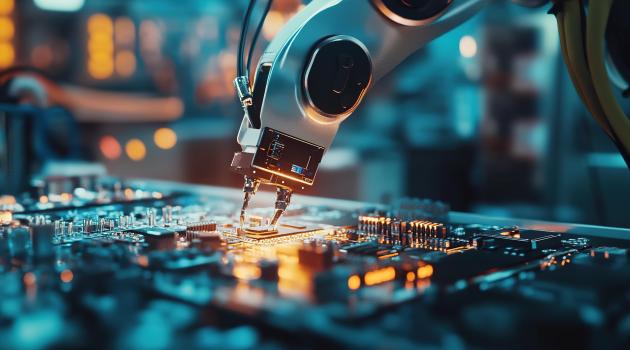The UK's creative industry has long been a cornerstone of the nation's economy, celebrated for its innovation and cultural contributions. However, the rapid advancement of Artificial Intelligence (AI) technologies presents both opportunities and challenges, particularly concerning copyright laws. Recent discussions have focused on the UK's proposed reforms to copyright regulations to accommodate AI development. As recruiters within the creative sector, it's imperative to understand these changes and their potential impact on talent acquisition and industry dynamics.
AI's Growing Influence in the Creative Sector
AI's integration into the creative process is no longer a futuristic concept but a present reality. From AI-generated music compositions to algorithm-driven visual art, technology is reshaping how creative content is produced. This evolution offers exciting possibilities for creators and consumers alike. However, it also raises pertinent questions about originality, ownership, and the protection of intellectual property.
Proposed Copyright Reforms: A Double-Edged Sword
In an effort to position the UK as a hub for AI innovation, the government has proposed amendments to existing copyright laws. These changes would permit tech companies to utilize copyrighted material for AI development without prior consent, provided the copyright holders do not opt out. While this approach aims to streamline AI research and development, it has sparked concerns among legal experts and creative professionals.
Critics argue that such reforms could undermine the economic foundation of the creative sector, which relies heavily on copyright protections to ensure fair compensation for creators. The fear is that allowing unrestricted use of copyrighted works could devalue original content and disincentivize creativity. Experts from institutions like Oxford University have warned that these changes might create unnecessary conflicts between the AI and creative industries, potentially breaching international agreements like the Berne Convention.
Implications for Recruitment in the Creative Industry
As recruiters serving the creative sector, these developments necessitate a strategic reassessment of our approach to talent acquisition and client relations:
- Evolving Skill Requirements: The convergence of AI and creativity demands professionals who possess both artistic vision and technological proficiency. Roles such as AI-assisted designers, data-driven content creators, and tech-savvy art directors are emerging, requiring us to seek candidates with hybrid skill sets.
- Adapting to Industry Concerns: Understanding the apprehensions of our clients regarding copyright reforms is crucial. We must engage in informed dialogues about how these changes could affect their operations and the talent they require, positioning ourselves as knowledgeable partners in navigating this evolving landscape.
- Advocacy for Fair Practices: It's essential to advocate for fair compensation and recognition for creative professionals. This includes staying abreast of legislative developments and supporting initiatives that protect the rights and livelihoods of creators.
Balancing Innovation with Protection
The challenge lies in fostering an environment where AI can enhance creative endeavours without compromising the rights of individual creators. This balance is vital for sustaining the vibrancy and economic viability of the UK's creative industry.
Conclusion
The intersection of AI and copyright law presents a complex yet pivotal moment for the UK creative industry. As a recruiter, our role extends beyond matching candidates with job openings; we are integral to shaping the future workforce in a rapidly changing environment. By staying informed and adaptable, we can ensure that both creativity and innovation continue to thrive.
Looking for a new role or need help hiring for your team? Let’s connect today!



